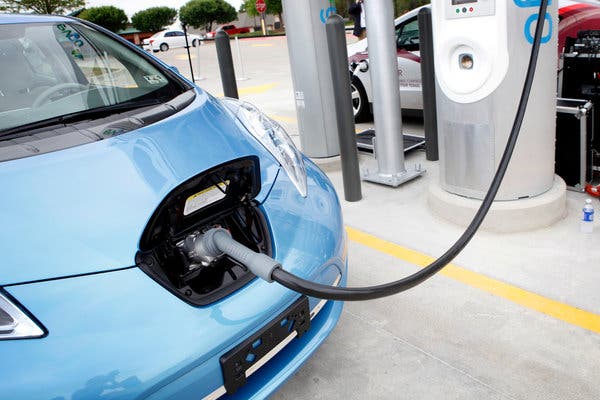
Georgia is a popular state for manufacturing. Georgia actually has the second-highest amount of electric vehicles on the roads. This is due in part to the state's tax credit for electric cars.
Georgians have thousands of options to electrify their cars with the tax credit. The credit is only available for electric cars, and it can be added to a tax refund. The credit amount will depend on the vehicle's batteries capacity. A credit of $7500 might be available for cars with a maximum capacity of 240kWh.
The federal government currently offers an EV tax credit. This credit is only for electric vehicles produced in North America. In addition, it has a phase-out. To qualify for the tax credits, a manufacturer must produce 200,000 eligible AEVs/PHEVs.

The Inflation Reduction Act of 2009 also provides rebates for clean energy. These incentives are available for both new and used EVs. They can offer a credit up to $7500. These credits will be phased out in 2020. Numerous lawmakers have introduced bills to eliminate the state's tax credit. Rep. Chuck Martin presented this bill.
Some lawmakers were concerned about how much the state was spending on tax credits. A bill was created to eliminate the incentive by 2020. Another legislator introduced a bill which would have extended the tax credit. The bill was saved by the state legislature in the final hour of the 2014 session.
Hyundai unveiled its first American-based EV factory in Bryan County (west of Savannah) in January. The company plans to produce 300,000 electric vehicles per year. The plant is expected employ 8100 people. Michael Stewart, the company's spokesperson, stated that they were disappointed about the loss of the tax credit. The company wants to work with the U.S. Department of Transportation or the federal government on a solution.
The federal government issued several amendments to the EV-tax credit. This modification requires strict requirements regarding battery sourcing. The Department of Transportation provides a tool to help you determine if an EV is eligible.

These requirements are not met by all manufacturers. Rivian is a California-based manufacturer of electric cars. It has seen an 80 percent drop in sales. Rivian could lose eligible customers for the tax credit. The company plans to reduce the price of its cars in an attempt to recover lost revenue.
Georgia has a rebate programme in addition to the credit. These programs are designed to give Georgians an incentive for converting to a cleaner, more environmentally-friendly alternative. Rebates are available to purchase a light-duty alternative fuel vehicle such as a hydrogen fuel-cell electric vehicle, an electric car powered by a battery or a plug in hybrid electric vehicle.
FAQ
What do I need to know about car mechanics?
For an auto mechanic job, you don’t have to be an expert in cars. You only need to know how to fix them. That's why most people start doing jobs like fitting brake pads or changing tires before progressing to more complex repairs.
You will need to understand written instructions, read diagrams and follow the basic rules of good practices. You will also need to understand how parts should be replaced or repaired.
It is important to remember that proper training and guidance are essential for anyone who attempts to repair vehicles. This is especially important if you work with expensive parts such as transmissions or engines.
In fact, even though you won't need to know much about cars, you will need to thoroughly know the basics of mechanical engineering and physics. This is how you understand the mechanisms behind engines and brakes.
It's also worth noting that you'll need to be prepared to deal with all sorts of situations. One example is when you could be working on a vehicle involved in a serious crash. Additionally, you will need to have experience with handling accidents and breakdowns.
You must also be willing to learn quickly. Not only will you need to be capable of diagnosing problems, but you also need to be able perform simple maintenance tasks like tightening nuts.
What's the difference between a mechanic and an automotive technician?
They are both similar, but not identical. A mechanic repairs cars while an automotive technician does maintenance on them.
A mechanic must have good manual dexterity and be able to perform simple tasks quickly. They should be able to accurately diagnose problems and repair them efficiently.
An automotive technician must be more technically proficient than a mechanic. They should be able read blueprints and use tools like drills and wrenches.
They must also be able to carry out complex procedures safely. They must be familiar with all types of electrical and engine systems.
They must also be able to understand how various parts interact with each other.
As a result, a mechanic usually earns less money than an automotive technician. Both careers have many options.
What is the length of an automotive training course?
A course in automotive lasts three years.
The first year is spent learning about cars and theory. The second year is dedicated to practical training, where you will learn how to fix cars, drive them, and do other jobs around the car. The final year is spent doing a placement at a local garage, which gives you experience in fixing real-world problems.
Is it worth being a mechanic.
The answer depends on what you are looking for in life. If money is your goal, then you can answer "yes". But if you are searching for meaning and purpose, then you should not answer this question.
It's not worth learning mechanics if you don’t have the skills. You'll waste your time. It's not going make you millionaire. It won't make your name famous. It is unlikely that you will be made famous.
You would need to spend years learning how to do everything properly. Also, you would need to hire someone else to fix it if it broke down. Most people won't bother to do it. They find something they enjoy instead.
In conclusion, if money is your main goal, you should go ahead. If you are looking for a fulfilling life, however, then stay clear of the mechanics' industry.
Can I work as an auto mechanic without a degree? Can I study part time?
A degree isn't necessary, but it certainly helps. Employers will prefer candidates who have completed a degree. It shows that you've worked hard and are determined to succeed.
It doesn't mean that you can't work while you study. Some universities permit students to do coursework during summer holidays and complete their studies later in a year. Other universities permit students to take classes part-time during the school year.
Statistics
- There were 749,900 jobs available for automotive service technicians and mechanics in 2016, which is expected to grow by six percent through 2026. (jobhero.com)
- The U.S. Bureau of Labor Statistics (BLS) reports that the job outlook for automotive service technicians and mechanics is expected to decline by 4% from 2019 to 2029. (indeed.com)
- According to the BLS, total auto technician employment is expected to exceed 705,000 by 2030. (uti.edu)
External Links
How To
How to get a mechanic certification
For those who are interested in becoming certified automotive technicians, the mechanic's certifications will help. They give an overview of the various areas of auto repair.
The program consists of 12 hours of classroom instruction and three months of on-the-job training at a participating dealership. The semester must include at least 60 hours of classroom instruction and passing a written exam that includes theory and practice questions. Students may take the National Institute for Automotive Service Excellence's state exam after completing the coursework. To be employed as an automotive service technician, you must have ASE certification.